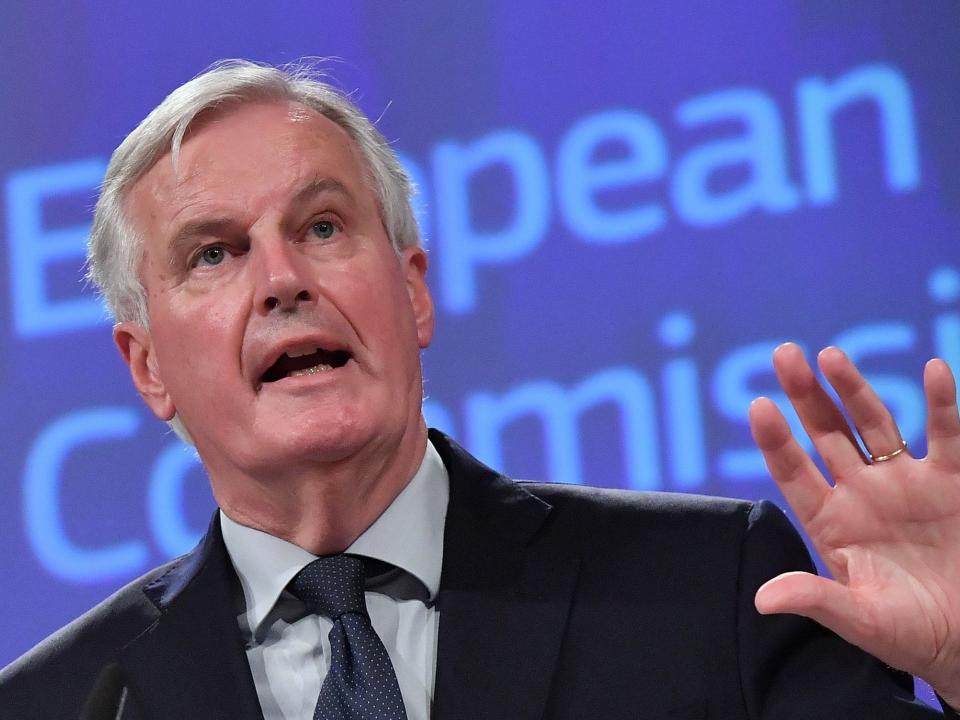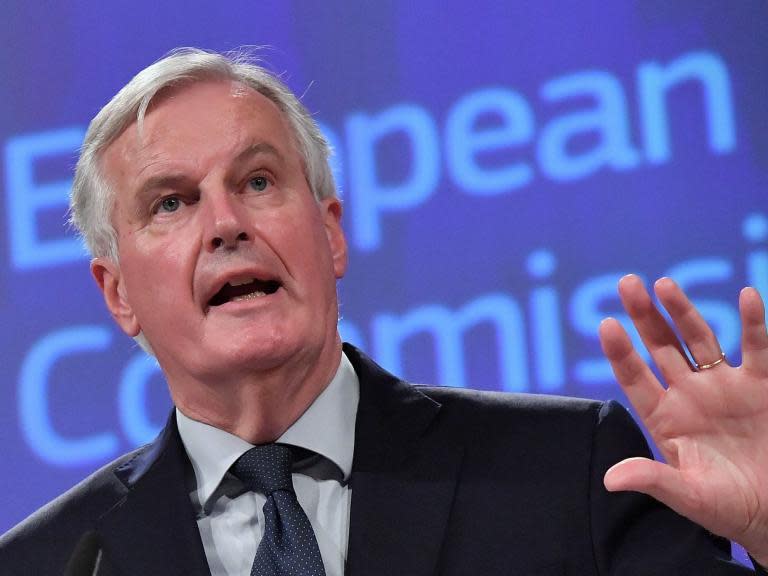Brexit future relationship deal 'not finished' and could still be changed by EU member states, Barnier warns
The part of Theresa May’s Brexit deal about Britain’s future relationship with the EU is “not finished” and could still be changed by EU member states in the coming days, Brussels has said.
Last night Downing Street and the European Commission jointly published a draft withdrawal agreement, and alongside it an outline of the “future relationship” Britain will have with the EU – in areas like customs, regulations, and security.
But it is understood that some member state governments have concerns about the deal struck by the Commission, and whether the plans could give the UK a competitive advantage.
Michel Barnier, the EU’s chief negotiator hinted there could be changes to the text, saying it needed to be “finalised” – while European Council president Donald Tusk said EU countries would have two days to raise objections.
Mr Barnier told reporters in Brussels: “Our work is not finished. We still have a have a long road ahead of us on both sides.
“For my side, the next few days, we will all work on the text of the political declaration for the future relationship with the member states, as well as the European Parliament.
“This work will now be intense. Our goal is to finalise this political declaration with the UK so the European Council can endorse it.”
Speaking alongside him, Mr Tusk said member states would have time to raise concerns with the document over the next two days.
“The agreement is now being analysed by all the member states. By the end of this week the EU27 ambassadors will meet in order to share their assessment of this agreement,” he said.
“They will also discuss the mandate for the commission to finalise the joint political declaration for the future declaration.
“The commission intends to agree the declaration with the political declaration by Tuesday. Over the following 48 hours the member states will have time to evaluate it.”
The commission intends to agree the declaration with the political declaration by Tuesday. Over the following 48 hours the member states will have time to evaluate it.
Donald Tusk
He added that “if nothing extraordinary happens” a summit would be held on Sunday November 25 to sign off the agreements. EU diplomats said the timescale for organising the summit was “tight” and that delays could derail the process.
Member state ambassadors gathered in Brussels on Wednesday night, simultaneously with Theresa May’s cabinet.
They were briefed by deputy chief negotiator Sabine Weyand on the withdrawal agreement and future relationship outline; EU sources suggested a number of “interventions” were made about the documents, some but not all relating to “process”.
But the overrunning meeting in London meant the Brussels gathering broke up without conclusion, because it relied on the UK cabinet having signed off the plans.
While the actual legal nuts and bolts of any trade deal will be negotiated after Britain leaves in March 2019, leaders had pledged to produce a “framework for the future relationship” to spell out the broad nature of the trade plan. It is that that MPs, alongside the withdrawal agreement, will get to vote on.
The withdrawal agreement itself meanwhile covers so-called “separation” issues like Northern Ireland, citizens rights, and the financial settlement.

 Yahoo News
Yahoo News 

